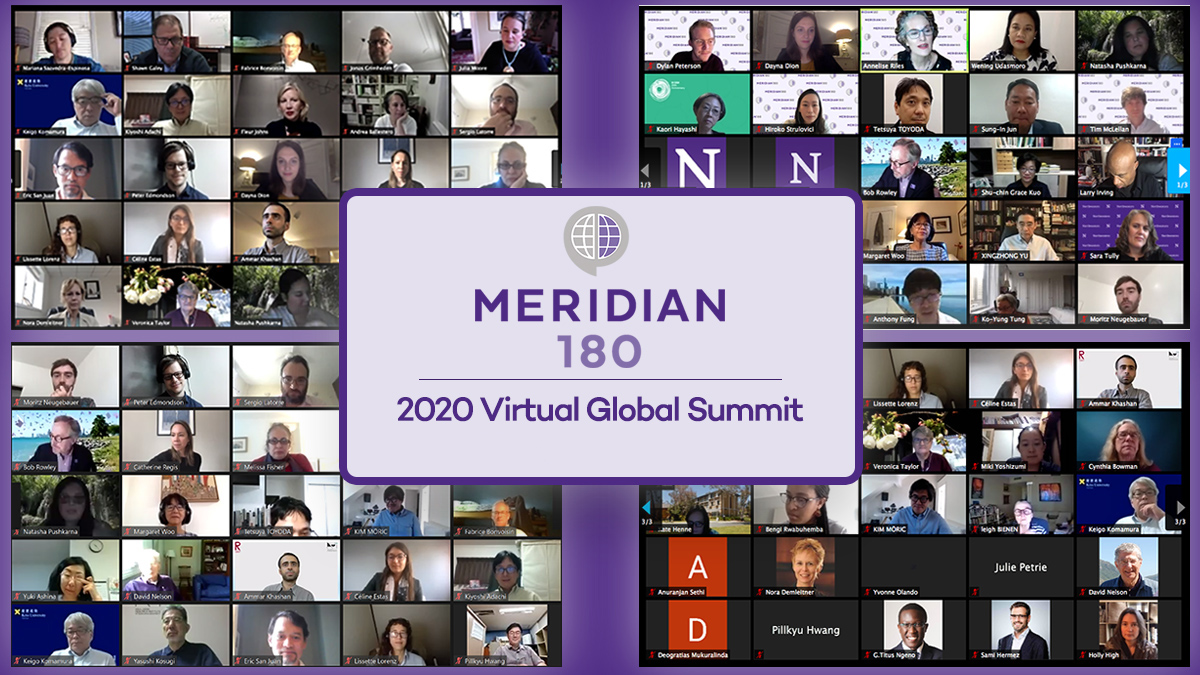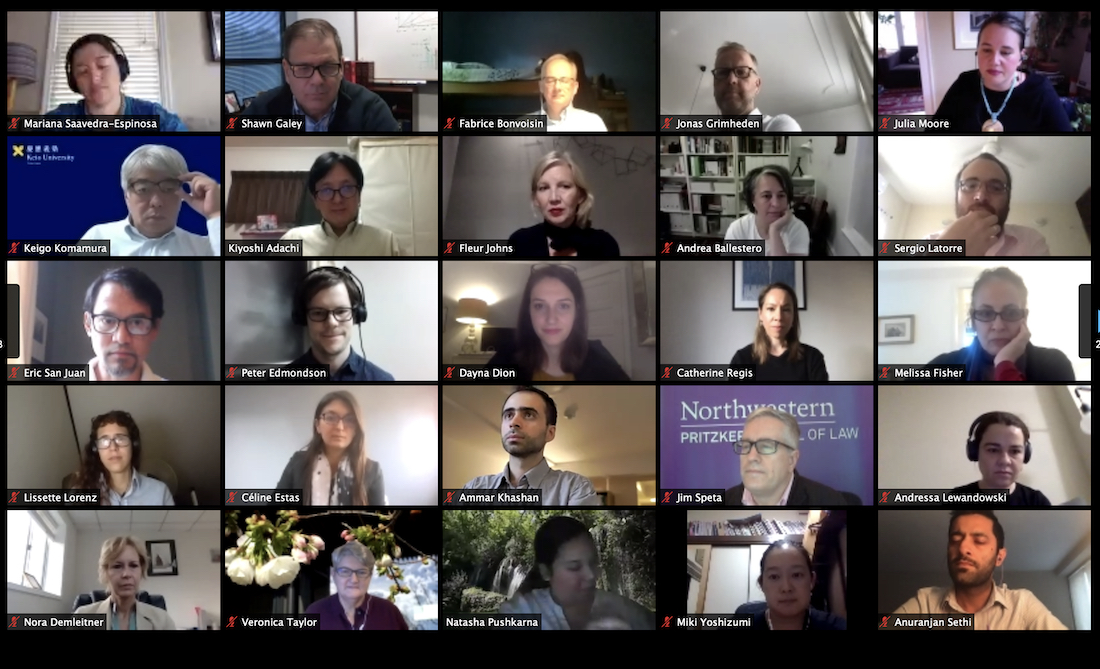Northwestern Buffett Hosts Virtual Meridian 180 Global Summit

The world experienced unprecedented change over the last year, as the global COVID-19 pandemic upended the ways of life many had come to take for granted and accelerated systemic changes that were already emerging. How do we begin to describe and understand the many different kinds of change we experienced? Which changes are temporary and which will outlast the pandemic? What are the short- and long-term implications of these changes?
The Northwestern Roberta Buffett Institute for Global Affairs convened more than 60 leaders from 18 countries and every sector of society to explore these questions and more for its 2020 Meridian 180 Global Summit. The Summit offered a virtual space for reflection and substantive dialogue on this time of dramatic global change, providing an opportunity for scholars and practitioners worldwide “to be together and think together about the present and what is to come,” said Annelise Riles, Executive Director of the Northwestern Roberta Buffett Institute for Global Affairs and founder of Meridian 180.
Launched in 2011, Meridian 180 is a platform for substantive, multilingual dialogue on issues of global relevance. Meridian 180 members are scholars, lawyers, policy makers, activists and business professionals who cross the divide between the academy, industry and public sector to surface novel solutions to global challenges.

What Change? Whose Change?
The Meridian 180 Global Summit’s theme, “What Change? Whose Change?” centered on the many forms of change, transformation and upheaval the COVID-19 pandemic has surfaced or accelerated. Scholars and experts across sectors teamed up to engage in creative narrative exercises, creating “postcards from the present” and notes to their future selves to serve as time capsules capturing this moment of global crisis and transformation from a wide range of different disciplinary and cultural perspectives. Leaders from higher education, the private sector, international NGOs and more also collaborated across geographies to produce “protest banners” visualizing their aspirations for and visions of change. These exercises illuminated a collective desire to build a politics of care and justice that “unites voices across the globe to continue the fight toward justice, happiness, and a shared common destiny for the planet,” as one Summit participant group expressed.
Teams reflected on what building a politics of care and justice might entail in practice, as well as the role Meridian 180 community could play in facilitating those changes. Here are three key takeaways from their discussions:
There are many ways to conceptualize a politics of care and justice. The “politics of care may have to mean political activism on a much larger scale” if we are to properly address political apathy, argued Zhaoxin Jiang, Associate Professor of Law at Shandong University. “I feel that the hard-pressed elimination of the politics of apathy does not necessarily make it easier to build the politics of care and empathy on its own. In this sense, we have a long way to go,” he said. “Care-in-justice, justice-in-care, the interaction between care and justice, and justice as care—these dichotomies constitute the fundamental relationships that can lead to various institutional arrangements and theoretical pursuits…they hold great potential for our uncertain but inevitable future,” added Xingzhong Yu, Anthony W. and Lulu C. Wang Professor in Chinese Law at Cornell University.
There is a need to rethink the dichotomy between the local and the global. “At the end of the day – whether as a result of globalization, the ubiquity of media, or something else – what’s needed and just in my neighborhood cannot be divorced from what’s needed and just in someone else’s neighborhood, regardless of how separated they may be by distance or culture,” said Shawn Galey, Vice President, Regional General Counsel & Government Affairs, Americas & Asia, Brambles Limited.
The transnational nature of many of our most pressing challenges require coordination on a larger scale. “Most issues are transnational, and we do not have the proper institutions to work with. Some issues will collide head-to-head with local and national regimes. While the issues we face are global, we are often confined within our national boundaries,” said Sung-In Jun, Professor of Economics, Hongik University.
We should embrace multicultural, multilingual ideals and be weary of dominant patterns of thinking as we look to the future. There is a tendency to focus specifically on issues in Europe and North America, all while using English as the primary language for communication. “We have to recognize that this creates limitations not only in the scope of ideas, but also in our way of thinking about those ideas,” said Sergio Latorre, Professor at the Universidad del Norte, Colombia School of Law. There is a need to consider the “multiplicity of worlds and the multiplicity of peoples, and how we connect those ideas and get those conversations going so that we're not just repeating the ideas of the dominant global network at the expense of others,” added Melissa Fisher, Adjunct Professor in International and Public Affairs at Columbia University.
Meridian 180 was founded in this spirit and continues to bridge the gaps across sectors, disciplines, geographies and languages to generate truly global conversations on topics ranging from the digitization of modern life to food and agriculture system vulnerability to nuclear disaster compensation schemes. To learn more about Meridian 180, contact us at unitedstates@meridian-180.org.
